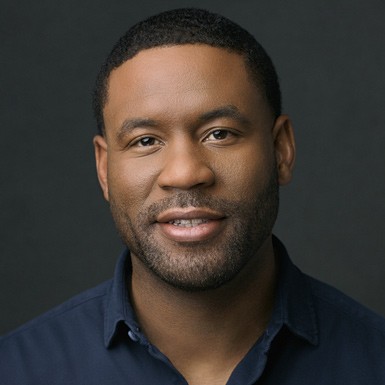How was this content?
VC perspectives on generative AI for Latino startups
The strategic decisions made early in a startup’s journey often play a large role in the outcome of the business. These decisions are even more crucial for founders who are underrepresented in their industry; they may not have access to the same resources to sustain many pivots and iterations of their core business strategy. In particular, we’d like to highlight that in the unique investment cycles in artificial intelligence (AI) and machine learning (ML), investors are becoming more stringent. Ensuring that business fundamentals are solid is of the utmost importance, especially considering the historical underinvestment in Latino founders.
The good news is that we are living in a moment of extraordinary potential. Generative AI has already changed the game for startup founders, lowering the time it takes to achieve product viability, and opening the gates of technology development to founders with fewer resources and smaller networks. At Amazon Web Services (AWS), we’re committed to helping startups take full advantage of these opportunities through our Underrepresented Founder Startup Business Development Team, which works with women founders, founders of color, founders with disabilities, and LGBTQIA+ founders to accelerate their progress. Opportune moments like this one happen once in a generation, and it’s up to us to seize it.
Through the Underrepresented Founder/Investor Business Development program at AWS, we had the great privilege of partnering with SomosVC, an extraordinary group of Latino investors, for a panel discussion on building generative AI businesses by and for the Latin American community. This brings us back to the idea we started with: How can underrepresented founders incorporate generative AI into their startup?

Even in an early-stage market such as generative AI, the barriers to entry can be daunting. Not only do the incumbents have brand recognition and capital to deploy, they also have a wealth of proprietary data built up over years of customer interactions—a key ingredient to building meaningful AI products.
Just because they have the data, though, doesn’t mean they know how to use it, argues Samuel Garcia, a partner at Amplo VC. Step one for companies trying to compete with larger players is to build or obtain a proprietary dataset that’s going to be difficult for competitors to copy. Put that together with a team of dedicated AI and machine learning engineers, and “those folks can really rival these incumbents, because they can do a lot more than the incumbents can,” Samuel says.
How? By focusing on the hard problems. Fortunately for ambitious founders, established companies have an excess of data that startups can help unlock value from, says Alan Arturo Day, an investor with New York Life Ventures. Initial use cases are likely to focus on internally-facing workflows which represent immediate opportunity for startups to validate their technology. “It’s not as high-risk and there’s not as many regulatory hurdles,” Alan says.

Other use cases for generative AI are further out on the horizon, and these higher-stakes, often customer-facing applications—whether it’s helping customers decide on the right insurance plan or giving them investment advice— will take more testing, implementation, and time to drive enterprise adoption.
The regulatory hurdles that might deter a large company can also play to a startup’s advantage—if the team is willing to pivot. Lisette Tellez is the President of the Board of SomosVC and the Managing Director of Ocean Azul Partners. She sees potential in companies that have done the hard work of gaining certifications and clearances and now just need the right product to take full advantage of the generative AI moment.
“One of our portfolio companies is in a regulated space—banking—and they’ve found that’s a really great moat for them,” Lisette says. Newer startups working to offer AI chat services to financial companies pose little competition because the older company has already established procurement processes with their existing clients. “For existing companies to add a new product line or feature is just going to make that product all the more sticky,” she explains.

This isn’t just about adding on “generative AI wrappers that don’t really bring a lot of differentiation to the table,” however, as Samuel puts it. It’s about companies harnessing AI to set themselves apart. When he’s considering whether to invest in a particular AI product, Samuel explains he’s looking not just for companies with a wealth of proprietary data, but also ones that are designing products with revenue in mind. “A whole other product offering that we have this data set for—that’s a no-brainer,” he says. “But when it comes to, ‘Should we add this feature?’ it really comes down to, ‘Can we charge more for it?’”
The other key question is, of course, is ‘What is the competition?’ And equally importantly, how are they doing it? Sergio Monsalve, Founding Partner of Roble Ventures, has been thinking about the relative advantage of software as a service (SaaS) versus managed service models. In this transition moment from the era of big data into the era of generative AI, he says, “I’m not sure the set-it-and-forget-it SaaS model is going to work.” Instead, “it makes a lot more sense for startups to grab the data, manage it for the customer, give them the answer, and then bill a lot of money for that service.”

The best way to compete in the generative AI space may be to join forces: merge, roll up, and acquire. “AI is pretty much like one plus one equals three,” Sergio adds. “If you put two companies together that have proprietary datasets with some very good machine learning (ML) and some really good AI people, then you’re going to get the synergies to get real return on investment.”
As a founder looking to get acquired, it’s important to have a clean and efficient tech stack, Lisette adds. But even better is to lean into what makes you unique. For Latin American founders, that might mean tailoring products where you have a deep expertise and in partnership with resources such as SomosVC and FounderFamilia. If you optimize your product to a customer segment’s specific needs, you create a data flywheel—the more customers you attract, the better and more refined your product becomes.
There’s also an incredible opportunity to tap into a pool of talented AI and ML engineers. At AWS In Latin America, we’ve observed startup founders, such as CEO Israel Niezen who co-founded Factored, leverage near-shoring. This approach has not only offered exceptional caliber of talent in US time zones, but has also delivered a cost-effective solution, diversified his team, and supported his community. As always, both SomosVC and AWS are here to assist.

“I want to point out one thing,” SomosVC Executive Director Mariela Salas says at the end of the discussion. “The fact that we have a panel of five Latinos talking about AI is amazing. I don’t know that we’ve ever seen this before. I’m excited to see it happen more often.”
According to the SomosVC 2022 Annual Report, Latino investors remain 2% of the industry, relative to 19% of the U.S. population. “Our organization is focused on growing and supporting the Latino/a venture capital ecosystem,” explains Mariela. “Specifically, we aim to increase the representation of Latino/a professionals in venture capital, help Latino/a venture investors build their careers and networks, and improve access to capital for Latino/a-led venture firms.”
AWS, along with LatinoVC and other organizations, are hosting candid dialogues to bridge the gap between Latino investors and founders. These discussions equip founders with insights to hone their fundraising strategies, boosting their potential for success. Furthermore, these dialogues guide founders in aligning their product development with the priorities and needs that investors deem crucial. We’re committed to continuing this initiative. Through partnerships with VCs, universities, incubators, accelerators, co-working spaces—you name it—we’re working to make sure founders from Latin American and other communities continue to rise and thrive.
Have questions or ideas? Now’s the time to reach out: nehgre@amazon.com to reach Nehemiah and the Underrepresented Founder Startup Business Development Team. We want to hear from you.
Ready to begin your startup journey? Join AWS Activate to build and scale your startup with the right resources at the right time.
Learn how underrepresented founders are proving what’s possible with AI on AWS:
- How STIGMA scaled their hope delivery app with the AWS Impact Accelerator
- Sign-Speak builds with AI on AWS to create accessible experiences
- Factored harnesses the transformative power of technology with AWS
AWS Activate updates program benefits regularly, and credit offerings and/or the offerings reflected in this blog post may differ from current Activate offers. For the most up to date information about Activate benefits, please visit https://aws.amazon.com/activate/

Aaron Melgar
Aaron empowers the AI/ML Startups & Venture Capital ecosystem at AWS, focused on early stage company growth. He is a former Founder, Series-A Product Manager, Machine Learning Director, and Strategy Consultant. He is a first-generation American who loves tennis, golf, travel, and exchanging audiobook recommendations about economics, psychology, or business.

Nehemiah Green
Nehemiah Green is the Global Partnerships lead for AWS' Underrepresented Founder Startup Business Development team. He fosters early relationships with underrepresented founders. Collaborating with VCs, incubators, and accelerators, Nehemiah ensures these founders receive the vital resources they need to scale and grow. Previously, he worked at Handshake and Patreon on strategic business development initiatives. Nehemiah has an Ed.M from Harvard and a BA from Tufts University.
How was this content?